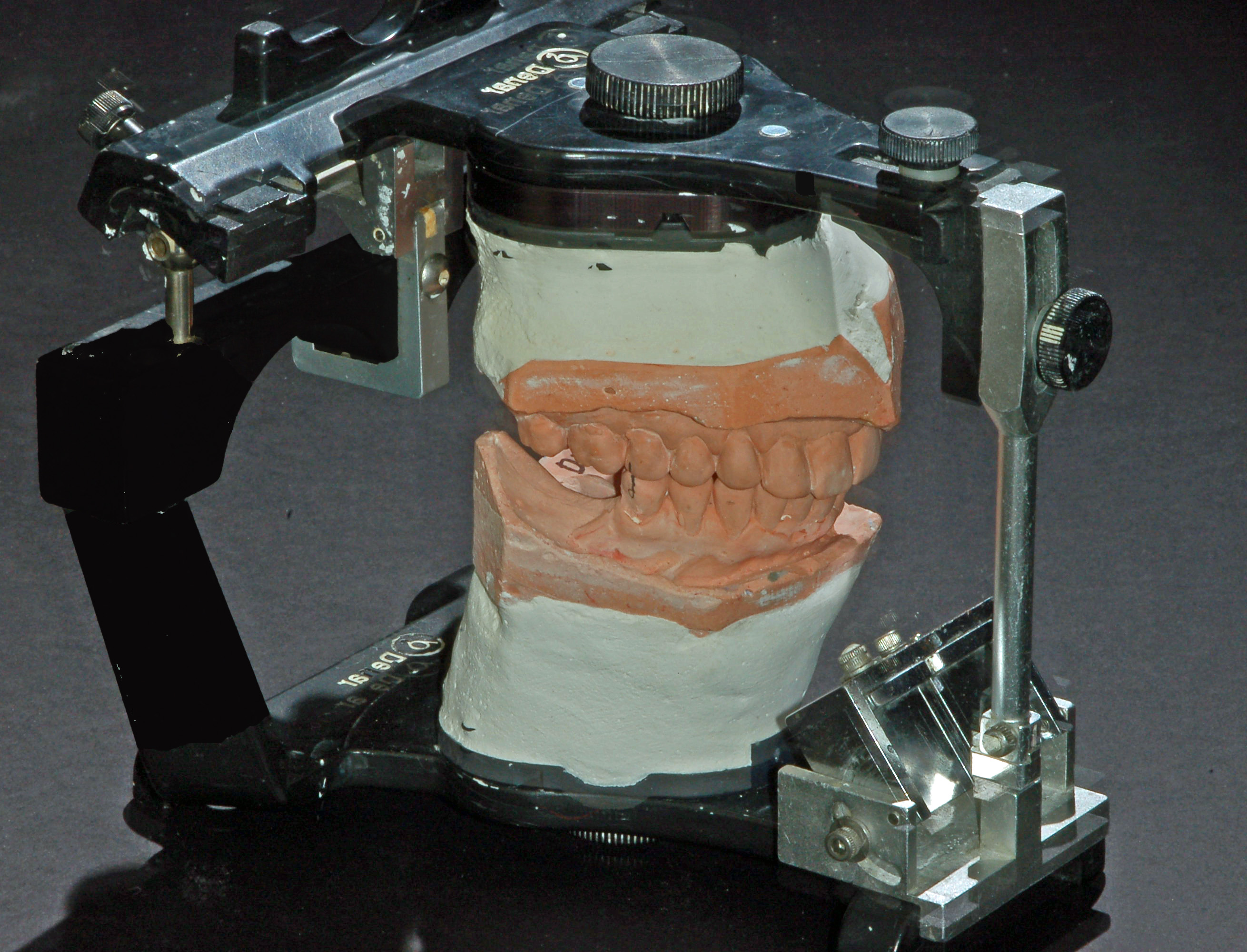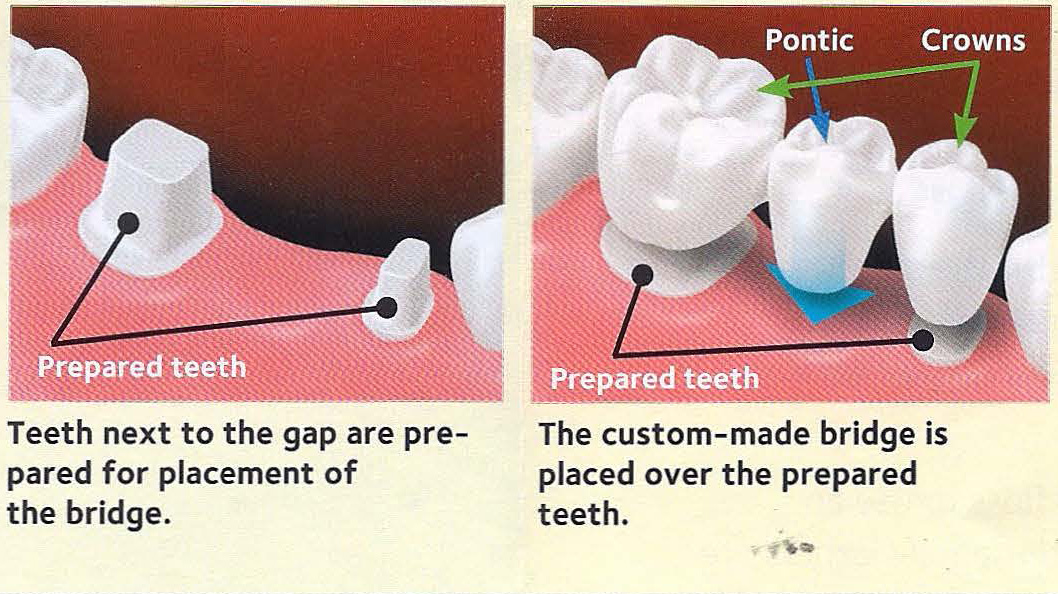Morristown Prosthodontics and Implant Dentistry
Dr. Barry A. Kaplan
Dr. Marc Appelbaum (Retired)
Dental Bridges
Missing teeth should be replaced with fixed bridges to prevent remaining teeth from drifing, bite collapse, joint problems and increase risk of periodontal disease with bone loss. Models are made of the mouth and the space requirements needed are carefully evaluated.
Your teeth on either side of the missing tooth need to be prepared by reshaping or reconstructing any badly decayed or damaged areas. Afterward, Dr Kaplan will take an impression of your teeth, which is then sent off to a lab where it is cast into a mold. You will have a temporary bridge to wear. On the last visit, the bridge is tried and cemented.
THE PROSTHODONTIST ADVANTAGE in Morristown, Mendham, Chester and Randolph
Using the latest advanced techniques and materials, Dr. Barry Kaplan, Prosthodontist, in Morris County, can help you achieve the smile of your dreams with a state-of-the-art dental bridge. At Advanced Prosthodontics and Implant dentistry in Morristown, Mendham, Chester and Randolph NJ. Dr. Barry Kaplan takes the extra time and care to customize his Bridges so that they will match each patients’ unique smile and bite and let you speak and chew comfortably while improving your appearance and self-confidence.
Dr. Barry Kaplan seamlessly combines science and artistry to recreate natural aesthetics and assure you of attaining the optimum cosmetic result. Dr. Barry Kaplans’ custom shade analysis ensures that the bridge restoration will match with the shade of your existing teeth. Your bridge teeth are created from high quality dental materials using one of the finest labs. The porcelain is translucent and life like, like natural tooth enamel, and it resists stains, permanently.
Anterior bridges are made from either porcelain or porcelain fused to a metal core. All-porcelain bridges are the most natural looking option because they subtly reflect light very similarly to a natural tooth, are translucent (also similar to natural teeth), and give a very natural, cosmetic result..
Natural front teeth often exhibit many different shades that vary from person to person. At Advanced Prosthodontics and Implant dentistry in Morristown, NJ. Dr. Barry Kaplan uses shade matching to make restorations that perfectly match the color of your natural teeth. Our shade matching system is a computerized small hand-held device that allows us to view the tooth hue, value and chroma in different light settings to create precise color matches. With this technology, you can be confident that your restorations will beautifully match your natural teeth.
While your bridge is being created, you will be given a temporary bridge. Bridges are cemented permanently into your mouth and after placement can be cared for just like your natural teeth. Your Bridge will seamlessly blend with your natural teeth.
Choosing Dr Barry Kaplan, Prosthodontist can be the difference between getting the smile you want and a serious disappointment.
Having one or more missing teeth can have a serious effect not only on your smile, but also on your dental health. Specifically, missing teeth can cause:
- A shift in the alignment of your teeth
- Increased risk of periodontal disease
- Increased risk of tooth decay
- Loss of adjacent teeth
- Speech disorders
- Tempromandibular joint disorder (TMJ)
What are Dental Bridges?
Like dental implants, dental bridges are used to replace a missing tooth, except bridges are supported by the teeth on either side called abutment teeth.
What Are the Benefits of Bridges?
Like many cosmetic dental procedures, placing bridges also serves a restorative purpose. A dental bridge will improve your ability to chew and speak as well as your smile. In a recent study published in the Journal of the American Dental Association, dental bridges were shown to dramatically reduce the risk of losing teeth that are adjacent to a missing tooth. In addition, dental bridges can help keep your jaw and face from changing shape, as they tend to do when a person has missing teeth.
What Types of Bridges Are There?
Cantilever bridges are used to replace a tooth that does not have supporting teeth on both sides of the affected area. Bonded bridges require minimal preparation and are bonded into place. Traditional bridges are the most common, and literally bridge the gap of an empty tooth space by securing a false tooth using crowns on the teeth on either side.
How Are Dental Bridges Placed?
The procedure of installing a dental bridge is typically completed in two visits. First, your dentist will determine if you are a good candidate for a dental bridge. If you are, your teeth will need to be prepared by reshaping or reconstructing any badly decayed or damaged areas. Afterward, your dentist will take an impression of your teeth, which is then sent off to a lab where it is cast into a mold, and give you a temporary bridge to wear. On your second visit, this mold will be fitted to your teeth, and any necessary corrections or adjustments will be made on that same visit.
How Long Do Dental Bridges Last?
Dental bridges can last from 8 to 15 years and can last even longer if you maintain good oral hygiene by brushing and flossing regularly.
Are Bridges Covered By My Dental Insurance?
Dental bridges are typically partially covered by insurers. Ask your dentist to find out exactly how much you will have to pay out of pocket.
Dental Bridges in Livingston NJ
Dental Bridges in Morristown NJ


